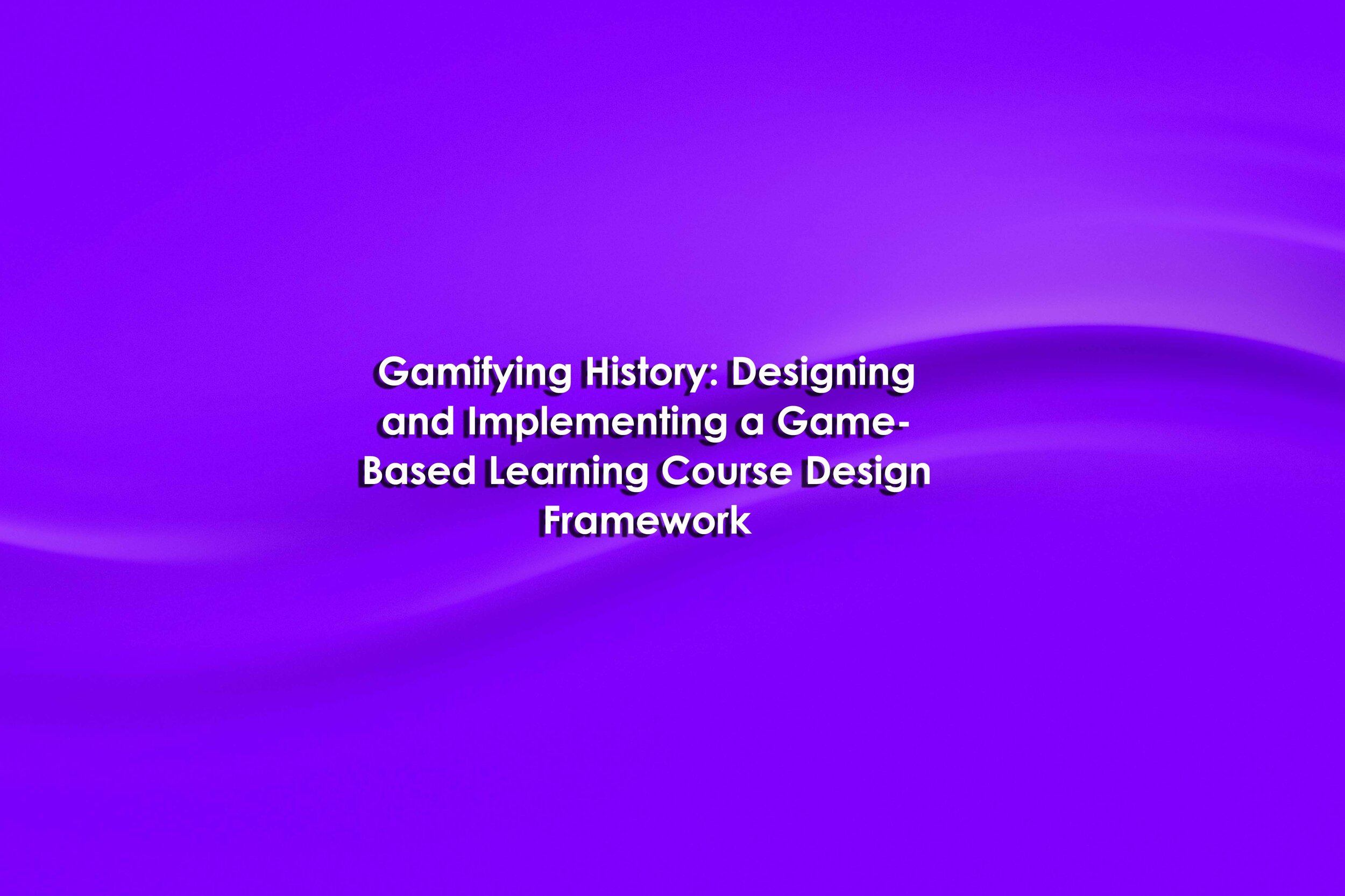Gamifying History: Designing and Implementing a Game-Based Learning Course Design Framework
Gamifying History: Designing and Implementing a Game-Based Learning Course Design Framework
Gamifying History: Designing and Implementing a Game-Based Learning Course Design Framework
Kyle W. Scholz
Abstract
“This paper analyzes the development and implementation of a game-based learning course design framework. Drawing inspiration from task-based learning, the framework is structured around four core gamified elements: narrative assignment design; learner discovery; team-based collaboration and competition; and choice through quests. The intended goal of implementing this framework is to improve learner engagement and foster greater learner investment in the course. The framework, developed at the University of Waterloo, was integrated into the course design for—and subsequently taught in—a third-year history course. A mixed-methods analysis was conducted in which students (n = 15) were surveyed, interviewed, and observed throughout the course at different intervals. The results of the study suggest that the team-based nature of the framework and the embedded gameplay elements are most effective at improving engagement for learners, while some form of extrinsic motivation is still beneficial to ensure all learners find completing additional tasks worthwhile.”
Reference
Scholz, K. W., Komornicka, J. N., & Moore, A. (2021). Gamifying History: Designing and Implementing a Game-Based Learning Course Design Framework. Teaching & Learning Inquiry, 9(1), 99-116.https://journalhosting.ucalgary.ca/index.php/TLI/article/view/70020
Keywords
Game-based learning, learners, motivation

